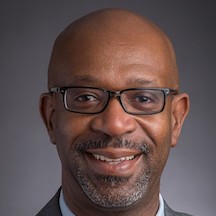 Historically Black North Carolina Central University in Durham has announced that it will offer a new digital filmmaking concentration in its department of mass communication. The first students are scheduled to enroll this coming fall.
Historically Black North Carolina Central University in Durham has announced that it will offer a new digital filmmaking concentration in its department of mass communication. The first students are scheduled to enroll this coming fall.
Mass communication majors in the digital filmmaking concentration will take the department’s required core courses along with five required courses, which include Introduction to Screenwriting, Introduction to Film Criticism, Video Production, Documentary, and Independent Film Production. Students will also take one departmental elective course to complete the concentration requirements. As part of the concentration’s co-curricular activities associated with the concentration, the department will begin hosting a monthly film series this fall that highlights and explores the work of African American filmmakers.
The concentration will provide majors with a foundation for entry into the filmmaking and digital storytelling fields, including producing, directing, editing, cinematography, production design, and sound with an emphasis on storytelling as a function of narrative communication. The university states that these skills are also applicable to graduates who want to pursue careers in fiction filmmaking, documentary production, music videos, commercials, and other branded content.
“With the digital filmmaking concentration, our goal is to put NCCU at the forefront of a field that has a growing need for skilled storytellers from underrepresented groups,” said Calvin Hall, chair of the department of mass communication. “We are excited about the prospect of the concentration helping our department develop partnerships with media outlets that will help our graduates tell stories that emerge from the lived experiences, the imagined experiences, and the historical perspectives that define us.”
Dr. Hall joined the faculty at the university in 2014 after teaching at Appalachian State University in Boone, North Carolina. He holds bachelor’s and master’s degrees in English from North Carolina State University. He earned a Ph.D. in mass communication from the University of North Carolina at Chapel Hill.










